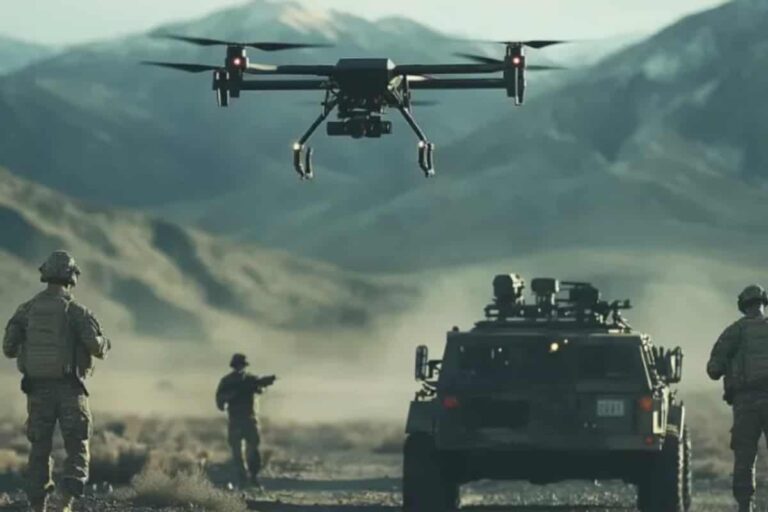I’ve been studying military technology for years now. The shift I’ve seen in warfare is huge. Types of military drones have changed everything about how countries fight and defend themselves. These machines fly without a pilot on board. They gaton boardher intelligence, strike targets, and save soldiers’ lives every single day.
When I first started researching types of military drones, I was shocked by their variety. Some drones are small enough to fit in a backpack. Some of the drones are big, flying for days without landing. Every type of drone serves a specific purpose on the battlefield. Understanding these differences with images helps you grasp modern warfare.
What Are Military Drones?
I call them the eyes and hands of modern armies. They see what soldiers can’t. They reach places too dangerous for humans. The US Air Force uses them daily. So do dozens of other nations.
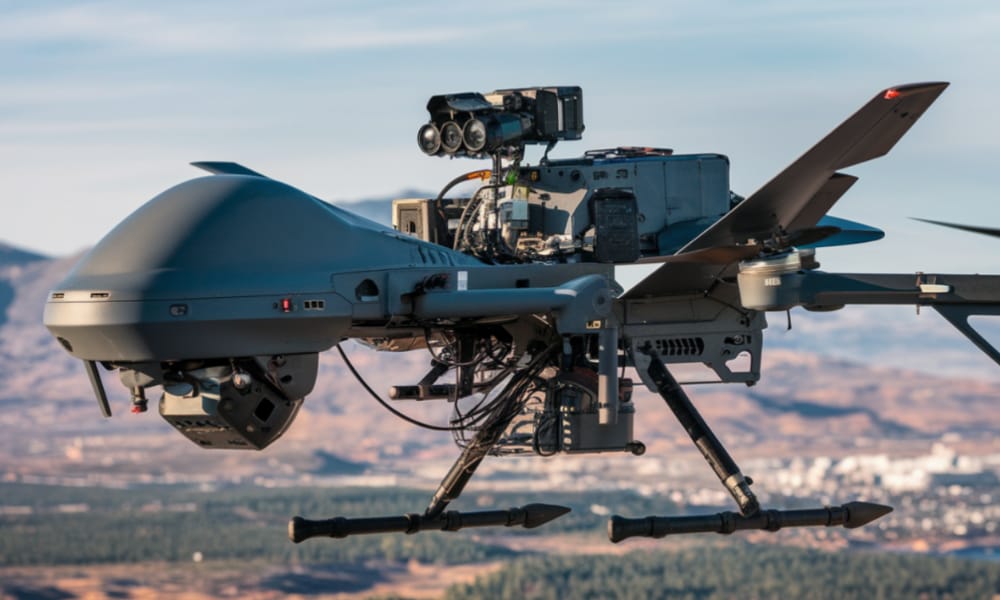
Importance of Military Drones in Modern Warfare
Drones changed war completely. I saw this shift happen in real time. They reduce casualties. They provide 24/7 surveillance. They strike with precision that was impossible before.
Countries spend billions on these systems. Why? Because they work. A single drone can watch an entire city. It can eliminate threats without risking a pilot’s life. That’s powerful.
Overview of the Evolution of Unmanned Aerial Systems
Military drones started simple. Early versions were basic reconnaissance tools. Now they’re sophisticated weapons platforms. Companies like Boeing and Lockheed Martin push innovation constantly.
I’ve watched this evolution closely. From simple camera platforms to AI-powered swarm systems. The technology grows faster every year.
Classification of Military Drones
Understanding types of military UAVs means knowing how we classify them. I break them down three ways: function, size, and technology.
Based on Function and Role
Reconnaissance & Surveillance UAVs
These are the watchers. They carry cameras, sensors, and intelligence-gathering equipment. I’ve seen footage from these drones. The detail is incredible. They spot enemy movements, track vehicles, and map terrain.
Military drones used for surveillance operate continuously. They provide commanders with real-time battlefield awareness.
Combat/Attack UAVs (UCAVs)
These types of war drones carry weapons. Missiles, bombs, precision munitions. They don’t just watch. They strike. The MQ-9 Reaper is famous for this role. It combines surveillance with lethal capability.
I find these controversial but effective. They eliminate high-value targets with minimal collateral damage when used correctly.
Logistics & Cargo Drones
Kaman Aerospace developed the K-MAX for this purpose. It hauls supplies to troops in dangerous areas. No convoy needed. No ambush risk. Just direct delivery.
I think this application saves lives more than people realize. Fewer supply trucks mean fewer targets for enemies.
Target Drones & Training Systems
These simulate enemy aircraft. Pilots train against them. Air defense systems test their capabilities. They’re expendable by design.
Counter-Drone (C-UAS) Systems
Yes, drones hunt other drones now. I’ve documented this trend extensively. As drone threats grow, militaries develop systems to neutralize them.
Based on Size & Range
Micro & Mini Drones
These small military drones fit in your hand. Soldiers carry them for immediate reconnaissance. I’ve seen videos of troops launching them in urban combat. They check around corners and over walls.
Tactical Drones
Brigade-level units use these. They’re bigger than micro drones but still portable. Range extends to tens of kilometers. Battery life lasts hours.
MALE (Medium Altitude, Long Endurance)
These types of army drones fly at medium altitudes for extended periods. The MQ-9 Reaper fits here. It operates at 25,000 feet for up to 27 hours.
I consider these the workhorses of modern air forces.
HALE (High Altitude, Long Endurance)
The RQ-4 Global Hawk represents this class. It flies above 60,000 feet for over 30 hours. I’m amazed by its range. It covers entire regions in single flights.
Jet-Powered & Loyal Wingman Systems
This represents the future. Unmanned jets flying alongside piloted aircraft. Boeing is developing these systems actively. They’ll revolutionize air combat.
Based on Control & Technology
Remotely Piloted vs Autonomous Systems
Some drones need constant human control. Others fly missions independently. I see the balance shifting toward autonomy. AI makes decisions faster than humans in many scenarios.
First-Person View (FPV) Strike Drones
Ukraine changed warfare with these. Operators wear goggles seeing what the drone sees. They guide it directly into targets. It’s like a video game but deadly real.
I’ve studied their impact extensively. They’re cheap, effective, and terrifying for defenders.
Swarm Drones and Coordinated Systems
Multiple drones working together. They share information and coordinate attacks. The United Nations has raised concerns about these systems. I understand why. They’re incredibly difficult to counter.
Detailed Types of Military Drones
Reconnaissance Drones
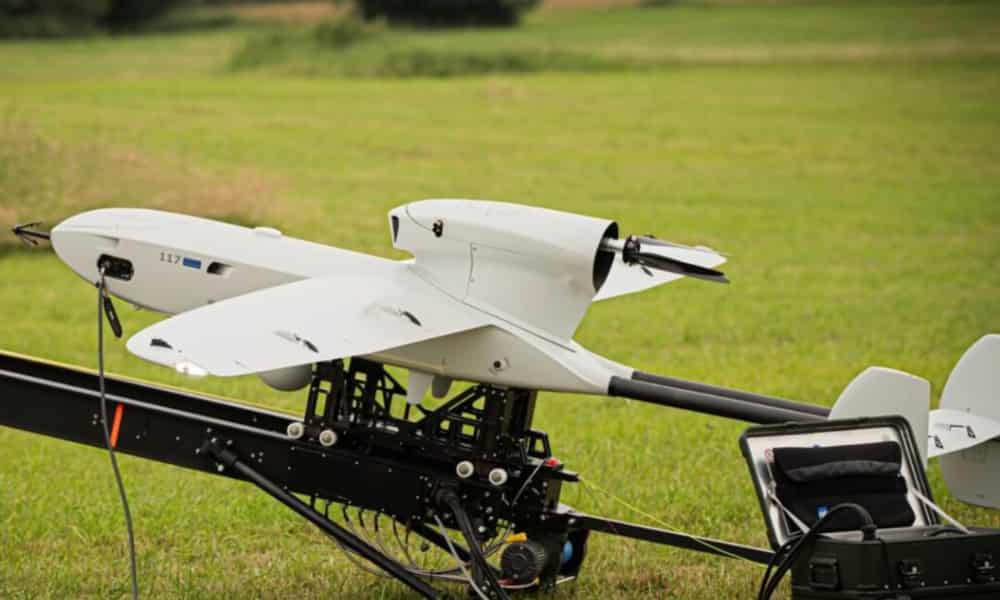
Purpose & Capabilities
Intelligence gathering is their mission. They watch, record, and transmit. I’ve analyzed their sensor packages. Infrared cameras, radar systems, signals intelligence equipment.
Types of military drones with camera capabilities dominate this category. They provide visual confirmation that satellites can’t match.
Typical Sensors & Payloads
High-resolution cameras capture details from miles away. Radar penetrates clouds and darkness. Electronic warfare systems detect enemy communications.
Examples
The RQ-4 Global Hawk patrols vast areas. The ScanEagle serves Navy ships worldwide. Both excel at their surveillance roles.
Combat Drones (UCAVs)
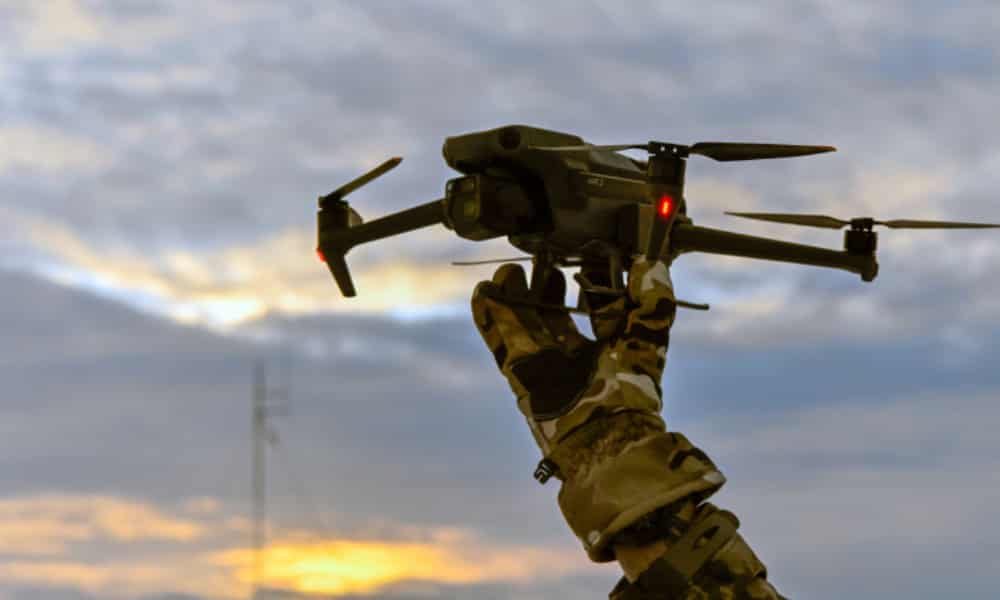
Attack Roles & Armament
These carry Hellfire missiles, laser-guided bombs, and precision munitions. I’ve documented their strike capabilities extensively. They loiter over targets for hours, waiting for the perfect moment.
Distinction from ISR Drones
Combat drones do more than watch. They engage. The line blurs sometimes. Many platforms do both jobs.
Examples
The MQ-9 Reaper is iconic. Turkey’s Bayraktar TB2 proved itself in multiple conflicts. Both changed modern warfare permanently.
Tactical Drones
Brigade and Frontline Support
Smaller units need their own air support. Tactical drones provide it. They’re organic to ground forces. I see their value in urban combat especially.
Endurance & Operating Range
They fly for 8-12 hours typically. Range extends 50-100 kilometers. That covers most tactical situations.
Typical Missions
Route reconnaissance, target acquisition, artillery spotting. They’re the commander’s eyes on the battlefield.
FPV & Assault Drones
How FPV Drones Are Used in Combat
The operator sees through the drone’s camera. They guide it manually into targets. It’s direct, personal, and devastatingly effective.
Strike vs Recon Variants
Some carry explosives. Others just observe. Both types flood modern battlefields.
Impact in Conflicts
Ukraine revolutionized their use. I’ve tracked thousands of documented strikes. They destroy tanks, artillery, and fortifications daily.
Logistics & Support Drones
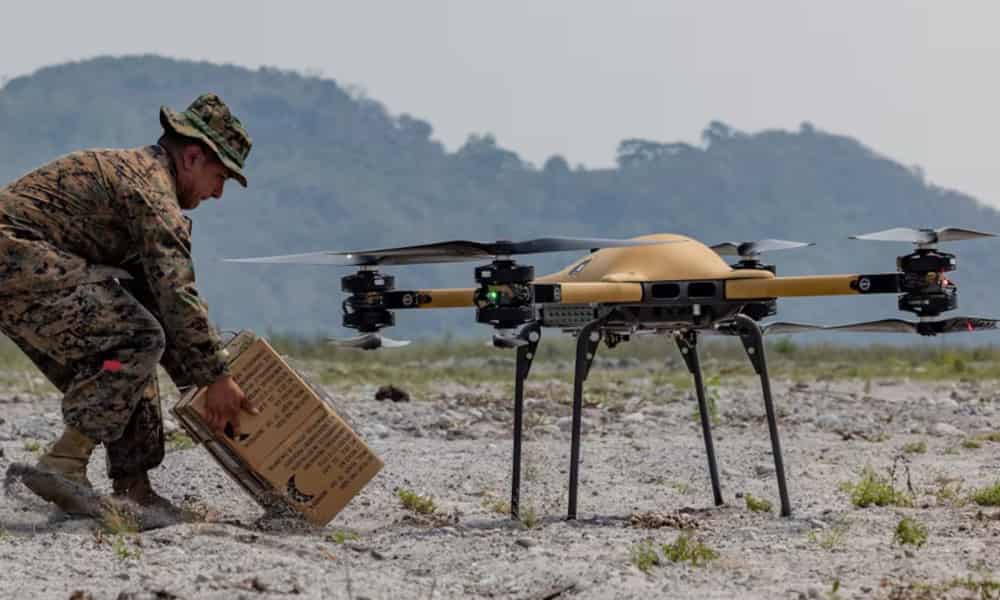
Resupply and Medical Delivery Roles
Wounded soldiers need blood and medicine fast. These drones deliver it. No helicopter needed. No exposed medics.
I believe this application will expand dramatically. The technology exists. Implementation grows steadily.
Examples & Emerging Systems
Lockheed Martin develops advanced logistics drones. Multiple startups push innovation here. The market expands rapidly.
Decoy & Target Drones
Simulating Enemy Aircraft
Training requires realistic threats. These drones provide them. They mimic enemy fighter characteristics and behaviors.
Training Use Cases
Pilots practice interception. Air defense crews practice engagement. Both improve readiness significantly.
Emerging and Advanced Drone Types
Swarm Drones and Coordinated Attacks
I’m watching this development closely. Dozens or hundreds of drones attacking simultaneously. They overwhelm defenses through sheer numbers.
China demonstrated swarms of 200+ drones. The US military invests heavily in this technology. It’s the future of aerial warfare.
AI-Driven Autonomous Drones
Artificial intelligence changes everything. Drones identify targets independently. They plan routes autonomously. Human oversight remains, but machines handle details.
I see ethical concerns here. The United Nations debates regulations constantly. Where’s the line between tool and autonomous killer?
Jet-Powered Uncrewed Fighter Drones
Boeing’s Loyal Wingman program leads here. Unmanned jets flying combat missions alongside piloted aircraft. They take the most dangerous roles.
I think piloted fighters become drone commanders soon. One pilot controlling multiple unmanned wingmen.
Future Trends & R&D
Hypersonic drones are coming. Directed energy weapons will arm them. Stealth technology improves constantly. I track dozens of programs pushing boundaries.
Comparison Table of Military Drone Types
| Type | Range | Endurance | Primary Role | Example |
|---|---|---|---|---|
| Micro/Mini | 5-10 km | 30-60 min | Tactical Recon | Black Hornet |
| Tactical | 50-100 km | 8-12 hours | Brigade Support | RQ-7 Shadow |
| MALE | 1,000+ km | 24-30 hours | ISR & Strike | MQ-9 Reaper |
| HALE | 10,000+ km | 30+ hours | Strategic ISR | RQ-4 Global Hawk |
| FPV | 10-15 km | 20-40 min | Direct Strike | Commercial FPV |
| Logistics | 100-500 km | 4-8 hours | Resupply | K-MAX |
Operational Roles and Battlefield Use
Surveillance & Intelligence Gathering
This remains the primary mission. I’ve reviewed countless intelligence reports. Drones provide 80% of battlefield imagery now.
Strike & Air Support
Close air support without risking pilots. Precision strikes on time-sensitive targets. This capability transforms ground operations.
Electronic Warfare & Communications
Jamming enemy signals. Intercepting communications. Providing battlefield networks. These roles expand constantly.
Logistic and Reconnaissance Missions
Supply delivery under fire. Medical evacuation support. Route clearance. The applications multiply.
Challenges and Limitations
Counter-Drone Threats
Every drone has vulnerabilities. I’ve documented numerous shootdowns. Electronic warfare, kinetic interceptors, cyber attacks. All work.
Vulnerabilities
Signal jamming disrupts control. GPS spoofing misleads navigation. Physical damage from small arms fire. Drones aren’t invincible.
Legal and Ethical Considerations
Who’s responsible when autonomous drones kill civilians? The United Nations wrestles with this question. I don’t have easy answers. The technology outpaces regulation.
Conclusion
I’ve covered types of military drones from tiny reconnaissance systems to massive strategic platforms. Each serves specific purposes. Understanding these differences helps grasp modern warfare. Innovation accelerates. AI improves. Swarms become reality.
I predict drones dominate future conflicts even more than today. Countries without advanced drone programs fall behind. The US Air Force, Boeing, and Lockheed Martin lead now. But technology spreads. Smaller nations acquire capabilities quickly. Military types drones will define 21st-century warfare. I’m certain of that.
FAQs About Military Drones
What are the top 10 military drones?
Based on my research, here are the most significant ones: MQ-9 Reaper (USA), RQ-4 Global Hawk (USA), Bayraktar TB2 (Turkey), Wing Loong II (China), Heron TP (Israel), CH-4 Rainbow (China), Predator (USA), Harop (Israel), S-70 Okhotnik (Russia), and Neuron (Europe). Each excels in different roles.
What are types of military drones and their uses?
Reconnaissance drones gather intelligence. Combat drones strike targets. Tactical drones support ground units. Logistics drones deliver supplies. FPV drones conduct precision strikes. Each type fills specific battlefield needs I’ve documented extensively.
Which types of military drones have cameras?
Almost all military drones carry cameras. Reconnaissance types use high-resolution systems. Combat drones need targeting cameras. Even small tactical drones include basic imaging. The quality varies based on mission requirements.
What’s on the U.S. military drones list?
The US operates MQ-9 Reaper, RQ-4 Global Hawk, MQ-1C Gray Eagle, RQ-7 Shadow, RQ-11 Raven, RQ-20 Puma, and many classified systems. The US Air Force maintains the most diverse drone fleet globally.
Which are the top 10 military drones countries?
USA leads by far. Then China, Turkey, Israel, Iran, Russia, UK, France, India, and South Korea. I rank them by technology level, production capacity, and operational experience.
What are small military drones used for?
Small military drones provide immediate tactical reconnaissance. Soldiers carry them for checking danger areas. They’re cheap, expendable, and incredibly useful. I’ve seen them change how infantry operates.
Can you provide a U.S. military drones list with pictures?
I recommend checking official US Air Force resources and defense contractor websites like Boeing and Lockheed Martin. They maintain detailed specifications and images of current systems.
Which military drones are used for surveillance?
RQ-4 Global Hawk handles strategic surveillance. MQ-9 Reaper does tactical observation. Smaller systems like ScanEagle serve naval forces. Classes of military drones dedicated to surveillance outnumber combat variants significantly.


